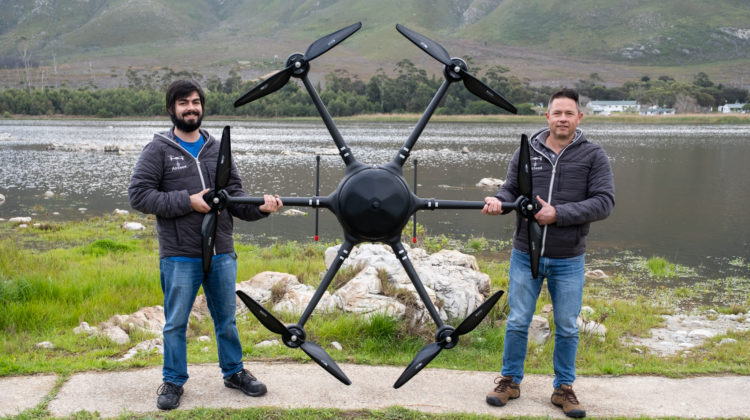
British engineering and smart-tech firm CAL International has teamed up with Australian green-tech start-up AirSeed Technologies to embark on a ground-breaking climate change initiative that aims to plant 100 million trees by 2024 in order to tackle both deforestation and global warming.
Working in partnership with AirSeed Technologies, CAL International has designed and engineered a seed-pod delivery system that sits as ‘the engine’ of AirSeed’s unique tree-planting aerial-drone technology.
CAL International’s mission brief was to take AirSeed’s existing delivery system and refine the design of the user interface and manufacturability of the seed-pod delivery system. The AirSeed drone, which uses artificial and data intelligence, is a payload and delivery system that identifies and locates designated target areas with GPS coordinates and then fires carbon pods onto the ground at a rate of two per second.
The carbon pods are then pinpointed on the mapping system in line with the flight trajectory, which also considers wind variables and conditions on the day of planting. This allows the drone to return on a reconnaissance flight via the same route to then identify and map tree growth.
Using a two-person team, an AirSeed drone can plant as many as 40,000 pods per day. The pods each carry a gram of carbon, which is collected from rotting and dying vegetation. During the germination cycle, the pod protects the seed from consumption by insects, rodents and birds. The seed pod is activated when it rains, with the carbon absorbing the water and allowing the seed to germinate.
‘As soon as Andrew [Walker, AirSeed co-founder] mentioned AirSeed to me I knew we were talking about a product and project that was ground-breaking in every sense of the word,’ said CAL International founder and engineer Cliff Kirby. ‘As a company, we blend a traditional engineering background with a company ethos built on innovation, and as such, we are often brought in to solve complex problems and issues in the automotive, defence and nuclear industries. Often those complexities will span both engineering and tech fields, which allows us to create solutions that can then be scaled to volume.’
‘CAL has taken responsibility for refining the design of the user interface and manufacturability of the seed pod delivery system,’ said Walker. ‘It was important that the engineering and build of this function would integrate into the flight systems and technical aspects of the aerial platform and telemetrics.
‘CAL has managed to take an existing delivery system design and turn it into a unique pod-delivery mechanism,’ he continued. ‘The design and engineering that has gone into the aerial platform from CAL also means we can produce a great number of AirSeed aerial platforms and deploy these into the field quicker, to speed up the process of reforestation, which will help us in a race against time to mitigate climate change.’
Traditional manual planting solutions are slow, labour-intensive, expensive and ineffective in trying to mitigate today’s rate of deforestation. AirSeed’s unique aerial platform is 80 per cent cheaper than current planting methods and 25 times faster than manual planting methods. It also enables operation in remote areas that are difficult to access due to challenging terrain or bushfire damage.



